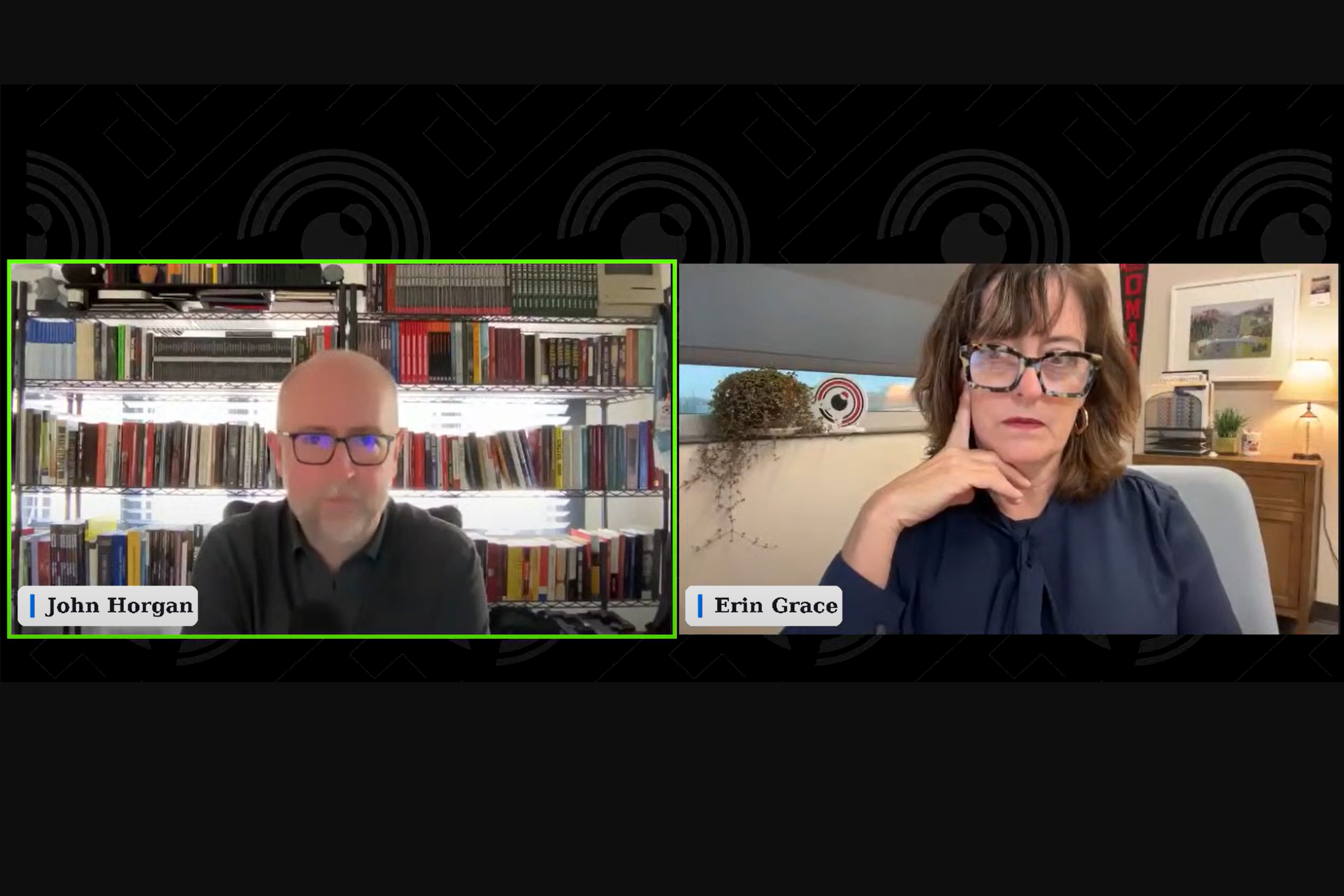RECAP: The Psychology of Violent Extremism
On Oct. 30, NCITE hosted a webinar with John Horgan, Ph.D., distinguished university professor of psychology at Georgia State University.
- contact: NCITE Communications
- phone: 402.554.6423
- email: ncite@unomaha.edu
- search keywords:
- terrorism
- psychology
- violent extremism

On Oct. 30, NCITE hosted a webinar with John Horgan, Ph.D., distinguished university professor of psychology at Georgia State University. Moderated by Erin Grace, NCITE director of strategic communications and external relations, the discussion covered Horgan’s work studying terrorist psychology and his recent publications.
Key Takeaways
There's a major lack of comprehensive interviews with terrorists. The study of terrorist psychology is relatively recent, and direct contact and discussion with terrorists has been limited. “From a psychological perspective, we’re just spinning our wheels unless we’re willing to really cross the Rubicon and seriously and comprehensively take on that one big challenge,” Horgan said.
- However, Horgan acknowledged that there are major access barriers to interviewing extremists. “It’s virtually impossible to conduct research like this in the Federal Bureau of Prisons,” he said. “It is ironically much easier for somebody like me to go to Pakistan or Somalia to listen to accounts of people who have been involved in terrorism than it is to do interviews with people who have been incarcerated for terrorism offenses here.”
The dynamic definition of terrorism is a big challenge for researchers.
- Horgan said that difficulty adapting to new legal and social parameters of terrorism is a major point of discussion with other researchers in the field. “Do you still abide by the same definition of terrorism you did last year, five years ago, 10 years ago? How has it changed? Should it change?” Horgan said. “What constitutes terrorism will forever itself be a moving target.”
There should be less focus on motivations to terrorism. Horgan said that the reasons people seek out extreme movements and become radicalized has been thoroughly researched, and that today there’s an overemphasis on motivation. “Increasingly I think that that’s a bit of a red herring,” said Horgan. “I think it is so easy to fall down the rabbit hole of motivation questions that we forget that we don’t necessarily need to get bogged in motivation issues for us to figure out solutions to terrorism.”
- Horgan said that the recent focus on salad bar, or mixed perpetrator ideologies, is a distraction. “They are important and interesting conversations to have, but I am not convinced that we are doing that in the service of practical preventative steps,” Horgan said.
There should be increased research on practical deterrence. Family members, friends, coworkers, and peers are often the first to notice warning signs but frequently do not report their concerns. “One of the most exciting sea changes we’ve seen in terrorism research over the past 20 years has been the acknowledgement that terrorist offenders leak behavior, they leak their intention,” said Horgan. Horgan said that research on identifying early detection of at-risk individuals and their immediate networks should be prioritized.
Books Mentioned in the Webinar
- Freedom by Sebastian Junger
- Winterdance by Gary Paulsen
- M Train by Patti Smith
- The Psychology of Extreme Violence by Clare Allely
- The Siege by Ben Macintyre